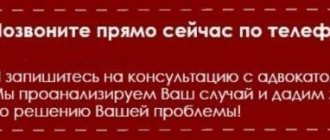Shift work - work in two, three or four shifts - is introduced in cases where the duration of the production process exceeds the permissible duration of daily work, as well as in order to more efficiently use equipment, increase the volume of products or services provided.
When working in shifts, each group of workers must work within the established working hours in accordance with the shift schedule. Labor Code of the Russian Federation
dated December 30, 2001 N 197-FZ
Full text of the article, guides, additional information - in ConsultantPlus
Article 103 of the Labor Code of the Russian Federation regulates the relationship between employee and employer related to shift work. The norm defines this term and reveals its main specifics.
Shift work concept
The norm means shift work, the time of which exceeds the standard 8-hour working day. The need for it arises due to the specifics of the production process, when in eight hours it is impossible to ensure the normal functioning of the equipment at the enterprise or the effective solution of the assigned tasks.
According to the shift norm there may be:
- 2;
- 3;
- 4.
During each shift, only one group of workers is used, into which the workforce is divided. The time during which she performs her duties sets the shift schedule. The rest of the groups rest during this period. When the first one finishes her shift, the second one replaces her. And so with all groups in turn.
In practice, the mode is most often used:
- industrial enterprises;
- management companies;
- public catering;
- trading companies;
- security companies;
- transport companies;
- medical organizations.
Important! Although the regime is widespread in government departments (Ministry of Internal Affairs, Ministry of Emergency Situations), Article 103 of the Labor Code regulates their activities only partially. The fact is that civil service is regulated by industry legislation.
Rules of user conduct on the site
Rules for using services and information
users of the electronic services system “Onlineinspection.rf”
The rules for the use of services and information by users (hereinafter referred to as the Rules) of the system of electronic services “Onlineinspektsiya.rf” (hereinafter referred to as the System) apply to all electronic services of the System, without exception, accessed through sections and pages of the Internet portal https://onlineinspektsiya. RF (hereinafter referred to as the Portal). These Rules govern the behavior of all, without exception, registered users in the System and unregistered visitors to the Portal.
1. Terms and concepts used in these Rules
1.1 These Rules use the following terms and concepts:
System – system of electronic services “Onlineinspektsiya.rf”.
Services are basic and additional tools offered to the User for interaction with authorities.
The portal is an information resource created for the purpose of interaction of citizens with the System, located on the Internet at the address: https://onlineinspektsiya.rf.
The portal administration is officials of the Federal Service for Labor and Employment and representatives of the contractor under the state contract for the provision of technical support of the Portal, who carry out the operational management of the Portal.
User – a person registered on the Portal who is invited to use the services provided by the Portal.
Moderator is a representative of the portal Administration who processes user messages.
Moderation is the process of processing and analyzing the compliance of the User’s message with the provisions of these Rules for the use of services and information by users of the online services system “Onlineinspektsiya.rf” and the User Agreement.
2. General rules
2.1. To access the publication of messages on the Portal (discussions, comments, questions and use of any other means of interaction between the User and the System), each Portal User must read and agree with these Rules.
2.2. After reading the texts of the Rules of Use and the User Agreement, confirming agreement with them on the registration page or sending a message, each User, by these actions, enters into an agreement with the Portal Administration to regulate their relationship.
2.3. The Portal Administration has the right to carry out moderation through representatives of the Portal Administration - moderators.
2.4. These Rules may be amended by amending the relevant order of the Federal Service for Labor and Employment.
3. User registration
3.1. The Portal has a user registration system. Only registered users have the opportunity to interact interactively with the System services.
3.2. To register on the Portal, the User specifies a valid email address - notifications about the current status of published messages (appeals) will be sent to it, and selects a conditional User name (“nickname”).
3.3. When registering a User, the System requests a password for the login being registered. This password must be known only to the User and must not be disclosed to third parties. The password used can be changed by the User in a special section of the Portal – User Profile.
3.4. When registering a User, the System initiates the authorization process by sending an SMS message with an activation code to the User’s phone number specified during registration. The received password must be entered in a special field in the window that opens. Only after entering the password will the account be activated.
3.5. For users who have an account on the Public Services Portal (https://www.gosuslugi.ru/), the opportunity to authorize using the login and password for this account is provided. If registration is carried out using this method, verification via SMS message is excluded.
4. Publication of appeals
4.1. Each registered User can publish an appeal.
4.2. Appeals are published in accordance with the proposed classifier of problem categories.
4.3. To create a request, you must fill out the request form. In the application form, the User must indicate his real data.
4.4. The user must fill in the following fields about himself as an applicant:
— the applicant’s residential address;
— last name, first name, patronymic (if any) of the applicant;
— the applicant’s mobile phone number (if there is no mobile phone required when registering in the System, the applicant has the right to submit an application directly to the email address of the territorial body of Rostrud. The list of territorial bodies of Rostrud is posted on the unified information portal of the Federal Service for Labor and Employment on the Internet "(https://rostrud.ru/). If the User has not previously registered on the Portal, an activation code will be sent to this specified phone number, which must be entered in a special field in the window that appears in order to activate the User’s account and contact him ;
— email address to which notifications about the progress of solving the problem will be sent.
The Portal Administration ensures non-disclosure to third parties of all user data entered during the registration process, except for cases stipulated by the User Agreement.
4.5. The user must fill in the following fields about the place of work:
- region, city and exact actual address of the organization of which he is an employee;
— information about the organization: name, legal form, legal address, information about the director;
— information about your position and period of work;
— information about third parties whose mention is required to fully describe the problem.
4.6. The user needs to fill in the following fields about his problem:
— explanations of the current situation;
— photographic materials.
Information entered in the “Explanation of the current situation” field becomes public and should be of a general nature. In this field it is prohibited to mention the personal data of third parties. If the applicant violates this paragraph of the rules, the User himself is responsible for the publication of information.
Photographic materials are classified information by default and can be published publicly at the discretion of the User.
4.7. Before sending the application, the User agrees with these Rules for the use of services and information by System users and accepts the agreement on the processing of personal data. In case of disagreement with these conditions, each User has the right to refuse to use the resource and use other types of communication offered on the official resources of the department.
4.8. The Portal uses post-moderation of messages. Messages are published immediately after they are posted by users and, if they violate these Rules, they are deleted, or the moderator sends a letter to the User with a request to eliminate the violation.
4.9. Reasons for refusal to publish a message or proposal to make adjustments:
- ignoring spelling rules and profanity, the message is not written in the state language of the Russian Federation or contains a large number of spelling and syntax errors, is written in capital letters, contains profanity, including in a veiled form;
- the lack of a logical connection between the sentences in the address, which does not allow one to understand the general meaning of the described case;
— extremism, discrimination (in all forms: racial, ethnic, age, gender, religious, social, etc.);
- commercial purposes and advertising - if, in the opinion of the moderator, the published information is directly or indirectly aimed at making a profit;
- insufficient description or unfounded accusations - the moderator reserves the right to reject a case if the information specified in it does not allow us to draw a conclusion about an existing offense;
— cases in which there is no specific indication of the problem and there are questions of a rhetorical nature are not moderated;
— cases that do not correspond to the category chosen by the User are not moderated;
— messages that duplicate previously published messages are not moderated (the text of the message completely repeats the text of the previous message, that is, it does not contain new information).
4.10. The user can familiarize himself with the response to the published appeal in his personal account, having previously completed authorization on the Portal.
Thank you for your attention and understanding!
When to administer
The article names the following as the goals of introducing the regime:
- continuous maintenance of the production process, the duration of which exceeds the normal working day;
- effective use of industrial equipment;
- increasing the volume of products produced by the enterprise or services provided.
In this case, the employer coordinates the shift schedule and the issue of its introduction with the representative body of employees (that is, the trade union). The provisions of local regulations are also taken into account - after all, they may prohibit a shift schedule.
Important! Although the employer agrees on the introduction of a shift schedule with the trade union, the latter’s disagreement with such a decision does not entail its cancellation. Article 103 of the Labor Code contains wording about “taking into account opinions”, and not about strict compliance with the requirements of the representative body.
How things work in practice
In practice, the introduction of a shift schedule consists of the following stages:
- Coordination of innovation with the trade union. At this stage, the employer brings the decision to the representative body and considers its objections and wishes.
- Publication of a local act. After considering the innovation in the trade union, the employer issues a normative act in which it fixes the possibility of introducing fixed-term work.
- Conclusion of a collective agreement. A collective agreement is concluded with employees, which stipulates the possibility of introducing a regime.
- Drawing up schedules. The last stage of introducing the regime is the preparation of schedules that distribute workers among shifts.
The Labor Code suggests attaching schedules to the collective agreement. The article in question contains the wording “as a rule”. In practice, this means that it is not at all necessary to attach schedules - the employer can act in a different, more convenient way for him.
More about creating charts
Article 103 does not directly regulate the procedure for creating schedules. The rules that regulate the procedure are “scattered” across various acts (some of them were adopted back in the Soviet period and are partially still in effect). Of course, when using the article in practice, they also need to be taken into account.
Here are the basic rules for creating charts:
- Accounting for employees who have the right to a shortened shift. These include minors, disabled people, and persons who have reached a certain age. The issue is settled by Article 94 of the Labor Code.
- Features of the regime in hazardous production. Its duration should not be more than 8 hours for a 36-hour work week and more than 6 hours for a 30-hour week. The issue is also regulated by Article 94.
- Other factors. It is necessary to take into account the duration of past shifts, rest, and night work. The issues are regulated by Articles 95-96 and 110.
It is also necessary to take into account the provisions of the Decree of the State Committee of Labor of the USSR and the Presidium of the All-Union Central Council of Trade Unions dated October 25, 1974 No. 298/P-22, which regulate a number of issues (for example, the right to a shortened shift in some conditions).
Another commentary on Article 103 of the Criminal Code of the Russian Federation
1. After the cure of a certain category of persons who were being treated in a psychiatric hospital, namely persons who committed a crime, whose mental disorder occurred after they committed the crime, when imposing a punishment or when resuming its execution, grounds appear for imposing a punishment or continuing to serve the sentence for crime committed.
2. Taking into account the fact that the compulsory treatment procedure itself significantly limits the rights and freedoms of citizens, the law provides for the need to count the time of application of compulsory medical measures, equating one day of stay in a psychiatric hospital to one day of imprisonment.
3. Treatment in a psychiatric hospital, as a rule, takes quite a long time. For this reason, in law enforcement practice the question often arises about the statute of limitations for criminal prosecution and execution of a conviction in relation to recovered persons. In such situations, it is necessary to take into account that, as defined in Art. 103 of the Criminal Code, the procedure for counting the time of compulsory medical measures is applied taking into account the statute of limitations for criminal prosecution established by Art. Art. 78, 94 CC. In cases where a person is sentenced not to imprisonment, it is necessary to be guided by the provisions of Art. 72 of the Criminal Code.
Other grounds for the release of recovered persons are also checked (Articles 80.1, 81, 84, 90, 92 of the Criminal Code).




